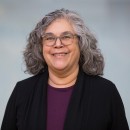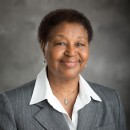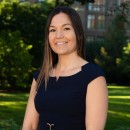School of Social Work News
Pages
- SSW Joint PhD Program 2021 Doctoral Class Enrollment Announcement
This decision is now approved and final.
The Joint Program in Social Work and Social Science at the University of Michigan has decided to not enroll a new doctoral class for 2021. This is a difficult decision but given the impact of COVID on our current diverse student body, it is needed to provide them the best chance for success. This would be for one year. Next year we would resume enrolling students as we previously have. We currently do not plan to offer deferments to prospective students this year. There are only eight seats per year and if we defer students this year we would not have seats available next year.
We know this is a disappointment for those of you who would like to enroll this year, and for that we are sorry. However, we are committed first to our current students and assuring they have all the resources they need to be successful. We think this is one of the reasons you may be considering our program and would expect nothing less of us. These are hard times for everyone, which force all of us to make difficult decisions. We hope that you will be able to apply next year. You are very important to our future. At this time, we have to make the best decisions we can for our current students so that they can move forward and become the next leaders in the field of social work.
The MSW program is still admitting a cohort for fall 2021. Please consider applying to their program.
FAQ Regarding Students Who Have Applied
I have already applied to the program, will my application fee be refunded?
Yes, your application will be refunded if you applied to the Joint Program without applying to any other programs. This cannot occur until we get final approval from Rackham School of Graduate Studies.
I would still like to be considered for the MSW program, is this possible?
Yes, we would like to encourage prospective students to still apply to the MSW program. We will continue to forward any information you submitted to us to the MSW admissions team, and if you have any questions about your MSW application you can reach out to [email protected].
- November 10, 2020
- Election Events and Resources
Michigan Social Work has archived resources and events from U-M and NASW connected to the upcoming election.
- November 9, 2020
 Lorraine Gutiérrez Receives the 2020 Career Achievement Award from the Association for Community Organization and Social Action
Lorraine Gutiérrez Receives the 2020 Career Achievement Award from the Association for Community Organization and Social ActionLorraine Gutiérrez, associate dean for educational programs and professor of social work, is receiving the 2020 Career Achievement Award from the Association for Community Organization and Social Action (ACOSA). The award honors the lifetime contribution of a person in the field who has made a major contribution to community practice. She is a leader in scholarship on group work, empowerment, multicultural practice and research for community change that has advanced these areas and enriched social work education and practice. She has exemplified an academic life that connects her teaching and research with her service that has enhanced her school, campus, community and profession.
"There is no greater honor than being recognized by my peers,” said Gutiérrez . “I joined ACOSA when I was a doctoral student in 1986 and it has always been an important part of my community-focused work. I have been happy to be contributing to the field of community practice."
- November 5, 2020
- Learn more »
 Ayesha Ghazi-Edwin Receives a Certificate of Appreciation from the James T. Neubacher Awards Committee
Ayesha Ghazi-Edwin Receives a Certificate of Appreciation from the James T. Neubacher Awards CommitteeENGAGE Program Director and Lecturer Ayesha Ghazi-Edwin received a Certificate of Appreciation from the James T. Neubacher Awards Committee, a unit of the U-M Council for Disability Concerns. The certificate is in acknowledgment of her efforts to advance the cause of accessibility and justice for the disability community. In addition to her work at the school, Ghazi-Edwin is also the Fund Development and Research Specialist at Detroit Disability Power, a disability justice nonprofit organization in Detroit. She also serves on the Michigan Social Work's Inclusion and Access Taskforce.
Established by the university’s Council for Disability Concerns in October 1990, the award is a memorial to James T. Neubacher, a university alumnus and columnist for the Detroit Free Press who advocated for equal rights and opportunities for people with disabilities.
- November 5, 2020
- Learn more »
 Letha Chadiha Receives the 2020 Career Achievement Award
Letha Chadiha Receives the 2020 Career Achievement AwardRose C. Gibson Collegiate Professor Emerita of Social Work Letha Chadiha is receiving the 2020 Career Achievement Award from the Association for Gerontology Education in Social Work. This award recognizes a faculty member who is an outstanding leader in social work education and aging with significant achievements including major research and publications, prominence in promoting education in gerontology, and mentoring faculty and students interested in aging.
- November 5, 2020
- School of Social Work Largest Ever Coursera MasterTrack Cohort
The School of Social Work “Practice, Policy, and Research MasterTrack” is the largest MasterTrack cohort ever for Coursera with 111 students enrolled.
- October 16, 2020
- Learn more »
- Ayesha Ghazi-Edwin Featured Activist in “i.Detroit”
ENGAGE Program Manager and Lecturer Ayesha Ghazi-Edwin is one of the 100 Detroit activists featured in "i.Detroit," a mixed media project by British artist Marcus Lyon. She was selected after a 6-month nomination process as an activist who is making a significant difference in Detroit. The project includes a book of portraits, a smartphone app and a 7-inch vinyl record; it also maps the DNA of its subjects to create what Lyon calls a “human atlas” of the city.
- October 16, 2020
- Learn more »
 Lisa Fedina Awarded a 2020 Young Investigator Grant from the American Foundation for Suicide Prevention
Lisa Fedina Awarded a 2020 Young Investigator Grant from the American Foundation for Suicide PreventionAssistant Professor Lisa Fedina was awarded a 2020 Young Investigator Grant from the American Foundation for Suicide Prevention. She will conduct a national survey with young adults ages 18-24 to identify protective factors for suicide that promote resilience among young adults, particularly those most at risk.
“We know that people often do not have isolated experiences with violence, but studies have not yet measured the range of victimization experiences in order to understand its full burden on mental health. This study represents an important step to build this underdeveloped area of research through theory-driven, person-centered approaches, allowing for greater accuracy in predicting suicidal behaviors by accounting for the effects of violence victimization over time and factors that may support resilient trajectories among youth,” says Fedina.
- October 8, 2020
- Learn more »
- Charles Garvin Named NASW Pioneer
Professor Emeritus Charles Garvin was recently inducted into the NASW Social Work Pioneers. Pioneers made important contributions to the social work profession, and to social policies through service, teaching, writing, research, program development, administration and legislation.
- October 7, 2020
- Learn more »
- Shanna and Leo Kattari Edit New Book Social Work and Health Care Practice with Transgender and Nonbinary Individuals
Assistant Professor Shanna Kattari and Lecturer Leo Kattari have edited a new book “Social Work and Health Care Practice with Transgender and Nonbinary Individuals.” Assistant Professor Ashley Lacombe-Duncan and Joint PhD student Matthew Bakko contributed chapters.
The book examines issues across the lifespan of transgender and nonbinary individuals whilst synthesizing conceptual work, empirical evidence, pedagogical content, educational experiences and the voices of transgender and nonbinary individuals.
- October 6, 2020
- Learn more »